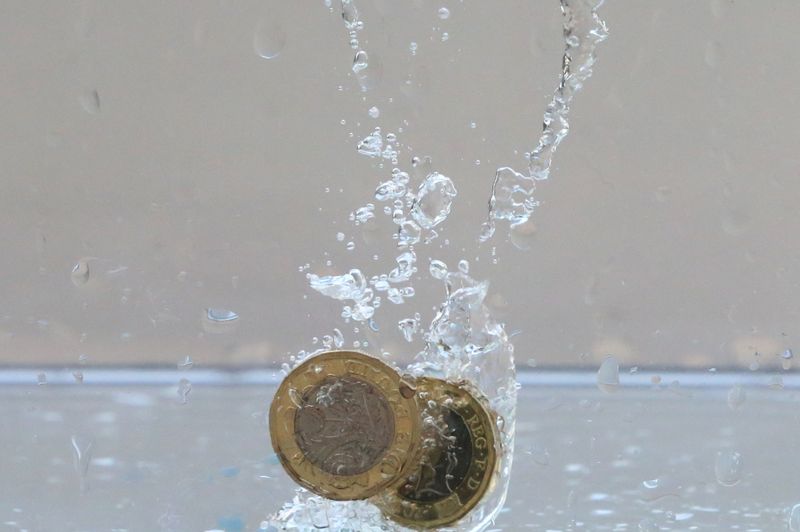LONDON (Reuters) - Sterling rose against the dollar on Thursday, joining with gains by most other currencies as data from a British business activity survey came in stronger than expected and showed robust growth for services firms.
The pound rose as much as 0.57% to $1.271, its highest since Feb 2 when markets were given a jolt by stronger than expected U.S. employment data that sent the dollar soaring.
The British currency was last up 0.13% as the dollar recouped some ground in the European afternoon.
Versus the euro, the pound was choppy, but last flat on the day at 85.6 pence.
The main data release for sterling on Thursday was February's preliminary S&P Global/CIPS Composite Purchasing Managers' Index (PMI), which spans services and manufacturing firms, and which rose to 53.3, the highest in nine months.
Economists polled by Reuters had forecast no change from January's reading of 52.9. A reading of 50 separates growth from contraction.
S&P's statement also noted that inflationary pressures remained elevated, and that "the rate of input price inflation edged up to its strongest since August 2023, largely due to rising salaries in the service sector".
Analysts said that meant the Bank of England could keep interest rates at their current level for longer.
"We are more comfortable after today’s data with our view of an August BoE cut – this had been a hawkish call that the BoE would wait so long, but we wonder how long it might be before markets think we’re too dovish (or even price August out altogether and delay cuts for longer)," said Nomura analysts in a note.
They expect the first rate cut by the U.S. Federal Reserve and the European Central Bank in June, "so the BoE’s less dovish stance should help GBP remain resilient in G10 space", they added.
Dove is a commonly used term for people who favour looser monetary policy to help economic growth, whereas hawks tend to favour higher interest rates to curb inflation.

Market pricing currently reflects just under a 50% chance of a BoE rate cut by June, and sees a cut by August as all but certain.
Currencies are very sensitive to changes in the interest rate differential between different markets.